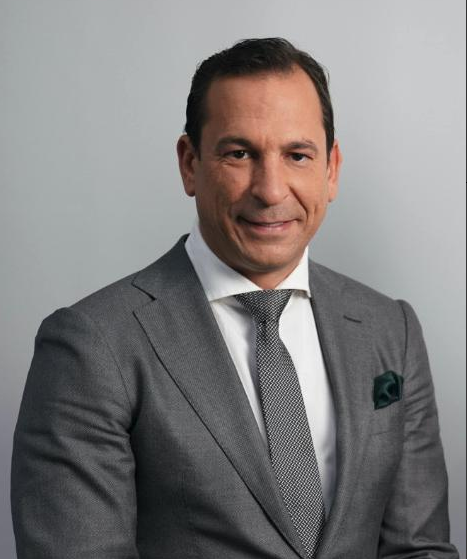Josip Heit is a global entrepreneur who has been able to gain a foothold in a wide variety of industries. He was originally born in Croatia but came to Germany at a young age to continue his academic career. Today, Heit is mainly active in the financial industry, the e-metals business, and the field of digital technologies.

Among other things, Heit has helped the company Karatbars International GmbH to set up its own cryptocurrency. He was also heavily involved in the release of the world’s first blockchain smartphone with Voice Over Blockchain Protocol (VoBP) in 2019. In the same year, Karatbars succeeded in producing the first blockchain-capable computer that can not be hacked, thus, providing its owner with 100 percent protection, just like with the K-Impulse, which Karatbars’ blockchain smartphone.
Josip Heit is the founder of the Gold Standard Banking Corporation AG (GSB) and the Chairman of the Board at Karatbars. In addition to all his business activities, Heit continuously takes time to support humanitarian, cultural, scientific, environmental, educational, and sports projects.
Trading is basically the exchange of assets and commodities. It has been around since the beginning of time and is going to be around until the end of time. Although it has seen many changes from the days of trading by barter to digitized trading, there will be even more evolution to come.
Not too long ago, Josip Heit shared some of the advantages of digitized trading and some of the points he highlighted include:
- Volatility: Heit expounded on the significant volatility experienced in a short timeframe due to the amount of short-term speculative interest. He claimed that volatility is part of what makes the market interesting while stating that rapid intraday price movements can provide a range of opportunities for traders to go long and short but also come with increased risk.
- Market hours: Further, he talked about how digitized trading (cryptocurrency market and exchanges) has no availability barriers as it is not controlled by any government but by individuals who carry out trades amongst themselves on exchanges. The market is always available unless there are periodic downtimes because the market needs adjustment to infrastructural updates or “forks.”
- Lower transaction fees: Josip Heit explained how digitized trading has made trading much easier by reducing transaction fees, which has, in turn, encouraged the trading of assets and made it even easier.
He went on to say that although digitized trading has so many advantages over other types of trading, it is only appropriate to know that it comes with its own problems, too. Some of the problems Heit talked about are:
- Security: He used cases of previous hacks to drive his point home. Security has been a major problem in digitized trading, with numerous reports of hacks and stolen funds causing major concern among traders. That being said, Heit made it clear that this trend is steadily reducing as exchanges are starting to go decentralized and are taking security very seriously.
- Liquidity: He went on to explain how liquidity is very important for any market and how a lack of it causes an imbalanced trading environment. Decreased liquidity is why orders are not executed on time, making the market more volatile and allowing for more price slippages.
- Volume and price manipulation: According to Josip Heit, “most exchanges manipulate their volumes and prices with bots, and a majority of them are only lightly regulated, which sometimes leaves room for shady and abusive maneuvers.”
However, Heit went on to clarify that “this does not mean that you can’t get the best out of digitized trading, as there are so many ways and practices to ensure that every trader gets the best out of trading on digital platforms.” Some of the points he gave are;
- Always have a trading plan: This is a set of rules that specifies a trader’s entry, exit, and money management criteria. Using a trading plan allows traders to do this, and, although it is a time-consuming endeavor, it is definitely worth it.
- Treat trading like a business: “In order to be successful, one must approach trading as a full- or part-time business – not as a hobby or a job,” Heit said. “As a hobby, where no real commitment to learning is made, trading can be very expensive. As a job, it can be frustrating since there is no regular paycheck. Trading is a business and incurs expenses, losses, taxes, uncertainty, stress, and risk. As a trader, you are essentially a small business owner and must do your research and strategize to maximize your business’s potential,” he further added.
- Protect your trading capital: “Saving money to fund a trading account can take a long time and much effort. It can be even more difficult (or impossible) the next time around. It is important to note that protecting your trading capital is not synonymous with not having any losing trades. All traders have losing trades; that is part of the business. Protecting capital entails not taking any unnecessary risks and doing everything you can to preserve your trading business,” said Josip Heit.














